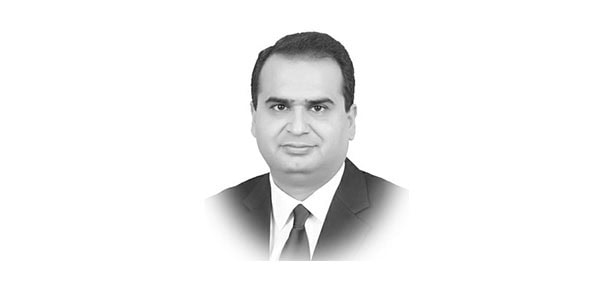Children in conflict with law
IN 2000, the Juvenile Justice System Ordinance 2000 (JJSO 2000) was incorporated into the criminal legal system of Pakistan to provide protection and safeguards to children in-conflict (child accused, convicts) with the law before, during and after trial justice processes.
The legislation identifies separate and strengthened safeguards for minors involved in criminal litigation with an aim to rehabilitate and reintegrate them back into society.
The implementation of the JJSO 2000 was very slow in the five years following its promulgation.
Some of its provisions were not implemented at all, others only very haltingly and partially.
To complicate matters, in 2004 a Full Bench of the Lahore High Court declared the JJSO 2000 ‘unreasonable, unconstitutional and impracticable’ and revoked its operation with immediate effect.
On 11 February 2005, the Supreme Court admitted appeals filed by the Federal Government and the Society for the Protection of the Rights of the Child (SPARC) against the 2004 judgment and issued a stay order against it, pending a final decision on the case.
The impugned judgment of the Lahore High Court remained suspended for more than a decade, until eventually, the Juvenile Justice System Act 2018 (JJSA 2018) was enacted, which repealed the previous Ordinance.
The JJSA 2018 overcomes the shortcomings of the JJSO 2000 and provides a much more articulated system for criminal justice and social reintegration of juvenile offenders.
The Act defines a child (according to the definition of the UNCRC) as ‘a person who has not attained the age of eighteen years.
’ It provides a special procedure for the inquiry, investigation, arrest, bail, trial, sentencing, detention, and rehabilitation of juvenile offenders.
Some of the salient new features of JJSA 2018 are establishment of observation homes, juvenile rehabilitation centers, juvenile justice committees, determination of age mechanism, disposal of cases through diversion, involvement of the guardian of the juvenile offender at all stages of the proceedings, separate challan and trial of juvenile offenders, imposition of penalty for disclosure of identity of juvenile or to publish the proceedings of juvenile court, special provisions for female juveniles, removal of disqualification attached with conviction and bar on preventive detention for juvenile offenders.
Pakistan has initiated a criminal justice reform agenda that includes justice for/with children and in this context, thirteen pilot child courts were established in Pakistan with the collaboration of civil society.
These thirteen child courts have been operational in Lahore, Peshawar, Mardan, Abbottabad, Quetta, Mohmand-Ghalanai, Islamabad, Karachi Malir, Karachi East, Dera Ismail Khan, Kohat, Bannu and Swat cities.
According to latest statistics, during the period of December 2017 to September 2021, the number of cases involving children in conflict or contact with the law tried under pilot child courts are 2447 and the number of cases involving children only in conflict with the law tried under pilot child courts are 1183.
The highest case disposal rate is observed in Islamabad pilot child court followed by Bannu and Mohmand pilot child courts.
The national average time to dispose of a case is 184 days and national average active time of a case is 120 days in pilot child courts.
The number of accused children granted bail by pilot child courts are 1234. The number of accused children acquitted by pilot child courts are 255 and convicted with minimum punishment in line with JJSA 2018 are 68.
To implement the Diversion process in juvenile offender cases, nine Juvenile Justice Committees (JJCs) were notified in Pakistan in order to align the juvenile justice system with international child safeguarding standards.
Out of total nine JJCs, eight are established in KP and one in Sindh province. 661children in conflict with the law availed Diversion, which is a form of rehabilitation to reform them into productive citizens and a big achievement in the field of Juvenile Justice System of Pakistan.
In April 2021, notification of PC-1 approval to establish Borstal Institution (Child Protection Institute, Observation Home and Rehabilitation Center) in Bannu and Peshawar was issued.
Since 2000, the Government of Pakistan has made much efforts for rehabilitation and protection of the human rights of juveniles, but despite this effort the juvenile offenders are reported to be continuously maltreated during their involvement in justice process.
Some of the common abuses that juvenile offenders experience in Pakistan are their executions, life imprisonment, police brutality, torture, custodial deaths and rape, imprisonment in adult prisons, non-exercising of age determination protocols in juvenile cases, low birth registration rate, trial of juveniles as adult offenders, trial in anti-terrorism courts, low minimum age of criminal responsibility, inadequate legal representation in juvenile cases, pre-conviction detention, non-existence of rehabilitation centres and observation homes for juveniles etc.
In a nutshell, juvenile justice system of Pakistan does not fully protect the human rights of juvenile offenders and best practices in this area which are exercised across the world are not practised in Pakistan.
The aforesaid violations of human rights of juvenile offenders in juvenile justice system of Pakistan can only be avoided, if the law applicable on child offenders ie, Juvenile Justice System Act 2018 is fully implemented in true letter and spirit.
—The writer is Advocate High Court/Co-chair, National Action & Coordination Group for ending violence against children, Pakistan.










